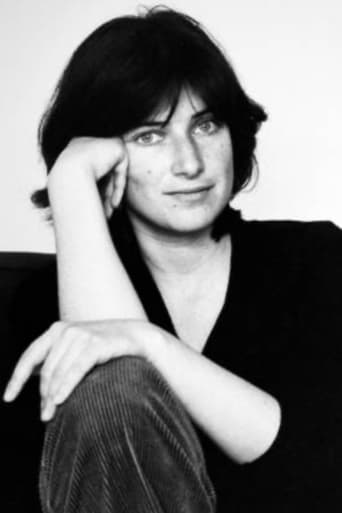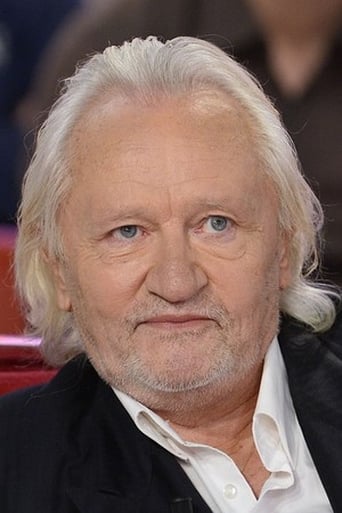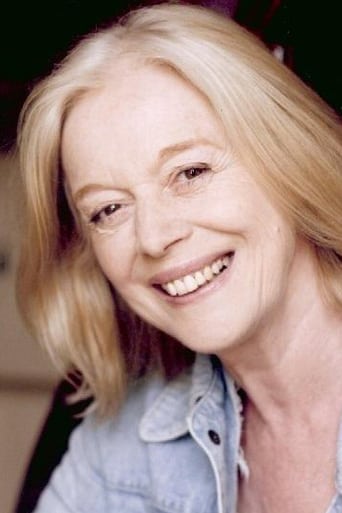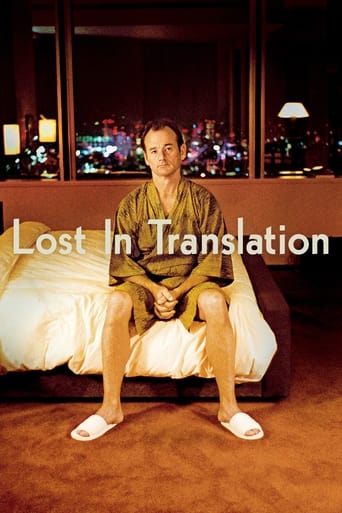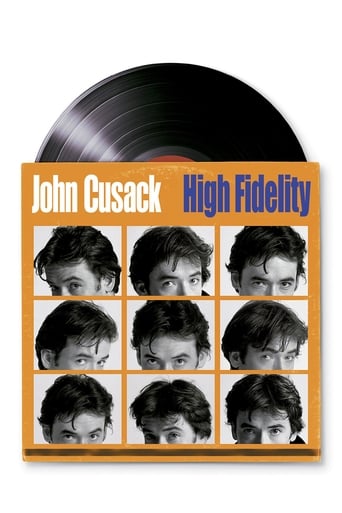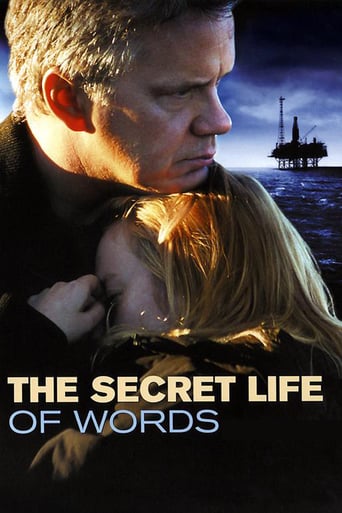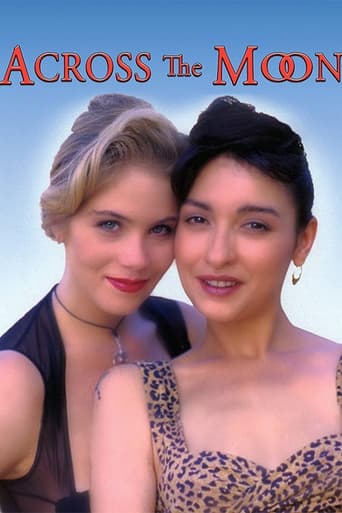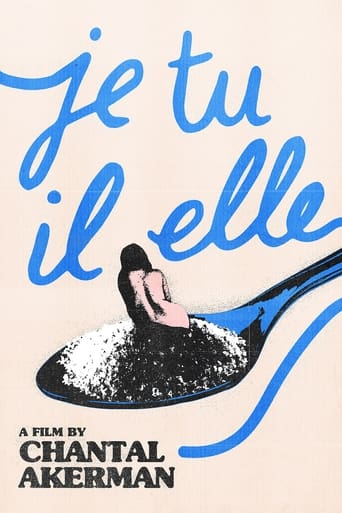
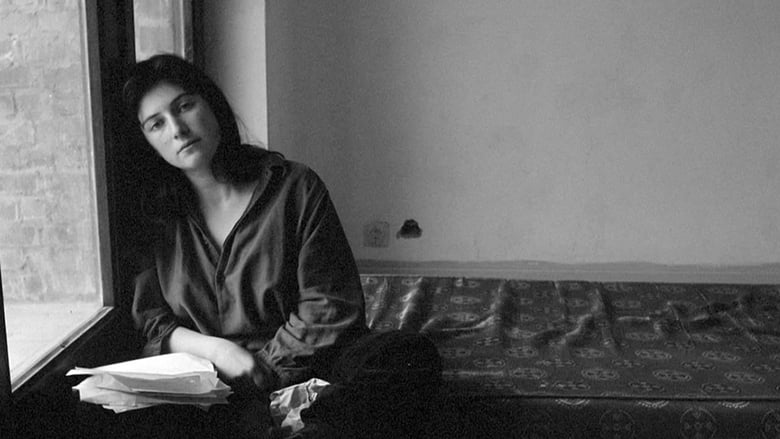
Je Tu Il Elle (1985)
A woman suffers a subdued psychological breakdown in the wake of a devastating breakup.
Watch Trailer
Cast


Similar titles
Reviews
People are voting emotionally.
Overrated and overhyped
It’s an especially fun movie from a director and cast who are clearly having a good time allowing themselves to let loose.
If the ambition is to provide two hours of instantly forgettable, popcorn-munching escapism, it succeeds.
Long, slow, static shots. A girl does a couple random, pointless, inane things in a small room. Long fades to black. Bland narration. Nothing very interesting happening. It actually starts to get slightly interesting when we finally get a second character who provides some real talk. Then jumps into an incredibly long, exaggerated, and boring lesbian scene. The end.This is just another artsy fartsy film that is fairly pointless and meaningless and vapid. It's some kind of "reflection" on sexuality, but with nothing insightful or even interesting to provide the viewer. The photography is just average. It slightly reminded me of the vastly superior film "Un homme qui dort" from the same year.
Having been interested in avant-garde cinema for about 50 years, I could see myself with my friends back in college, parsing something like this. This was the time of an eight hour film of a man sleeping. Every hour or so he would turn over or readjust his pillow. I suppose this lays a foundation for a filmmaker to eventually break from this into something with some sense. This film about a girl who spends a week eating powdered sugar, painting her apartment, and moving her mattress around probably does something for someone. She also poses in the nude, inviting voyeurism, which, I suppose we can only guess at. The other two thirds of the film, a meeting with a blue collar worker to watch a gangster movie, and a lesbian love scene, hang on for what seems like hours. Anyway, I haven't anything to contribute other than the final love scene reminded me of a film about insects, where a wasp struggles with an insect of equal size, grasps him and stings him until he is dead. There is endless convulsing, short moments of relaxation and exhaustion, and, finally, the coup de grace.
Not quite sure what this is supposed to be or mean. Don't get me wrong. I'm not one of those who strive after meaning, allegories and new dimensions or need such things to get involved in a great film. Sadly Je, tu, il, elle did not strike me as a great film.As a fan of long static shots I might not have had as big trouble as some others seems to have had. But the beauty of the imagery was minimal. And the lesbian love scene in contrast less grey felt not only dead but entirely inhuman and distant.The 30 minute opening act was though it's many attempt of humor more or less dull. Her inner dialog struck me as somewhat silly rather than funny, interesting and deep. My interest grew during the second act, which is more dialog driven than the first and the last.If anything this is a revolt against form. And I can in some sense appreciate it for this. Anything new or different will obviously create some interest and start some sparks. But Akerman did not manage to bring me in with this one.
Chantal Akerman had a stretch of time in the 1970's where she made her mark with fully experimental films. Some of them had a narrative, like Jeanne Dielman, and others were more like elongated postcards like News From Home or Hotel Monterrey, but they all had a distinctive mark, with long takes, obsessively long, and characters doing physical actions that are akin to ritual or just apart of a repetitive nature. I, You, She, He is a really revolutionary piece of work, though I can't say I really 'enjoyed' it exactly. It's a film that is made to provoke the audience, into discussion or just a reaction. I can only imagine what it must have been like to see this in a theater, where half the audience might get up in the first ten minutes, and the rest stayed with equal enthrallment and confusion at what they were seeing. It's also quite naked, literally at times, about a search for (sexual) identity.Akerman plays Julie, though we're never revealed that is actually her name, and for the first half hour of this 86 minute film, she's in her room. That's it. She writes a letter, or a few letters, rewrites them, moves around furniture, eats sugar, eats more sugar, spill some sugar and spoon by spoonful puts the sugar back in the brown bag, and then gets naked and roams around the room. You might have heard the expression with an "art-house" film that it's "like watching paint dry." With this film, it's hard to exaggerate that claim enough. Shots last for minutes, and Akerman is often sitting either in obsessive detail of what she's doing, or not really doing anything at all, like in a trance, with her narration coming up dutifully explaining exactly what is happening or will happen on screen.But if you stick with it, and being a fan of Jeanne Dielman I knew this was how Akerman likes to film in a patient poetic style, it starts to show a pattern. Julie isn't just doing nothing, but she's doing MUCH of nothing, obsessively, over and over, with the letters, the sugar, the furniture, her own body. And just when it's getting too long going, as if Akerman knows how the audience is feeling, Julie finally leaves the room. From here it becomes a two-part road trip. First she hitchhikes and is picked up by a truck driver. His scenes start slow, but at least there's more on the soundtrack (music, audio from a TV, other cars), and it leads up to an un-erotic but fascinating scene where the driver forces Julie to give a hand-job. He then gives a monologue about his wife and kids and driving while aroused. Why not? It's an amazing list of things said, and acted well enough.The second part is the most surreal, but also the most heartfelt. Julie meets up with a Girlfriend at her place, and at first they eat. But then comes a very long scene of lovemaking. Again, do shots go on too long, or are they just right for the rhythm Akerman is reaching for? If you think the former, then probably you've already tuned out or turned off the film. For the latter, it is just about right, and by now Akerman has gone to a kind of alienating apex. It's hard to identify with Julie, but some of her concerns, like finding a place, people to love or be with, something to do worthwhile, do resonate, and the subtext is thick with ideas and methods. The approach is precisely feminist, much more so than anything else I can think of from the period, where the technique, the "performances" (vacant/naturalistic as they are), and the heart in its poetic intent speak about a woman's nature to be unsatisfied, and searching for something, a longing, a person, sex, anything. That it's Akerman herself in the role, often naked and open, is startling.


